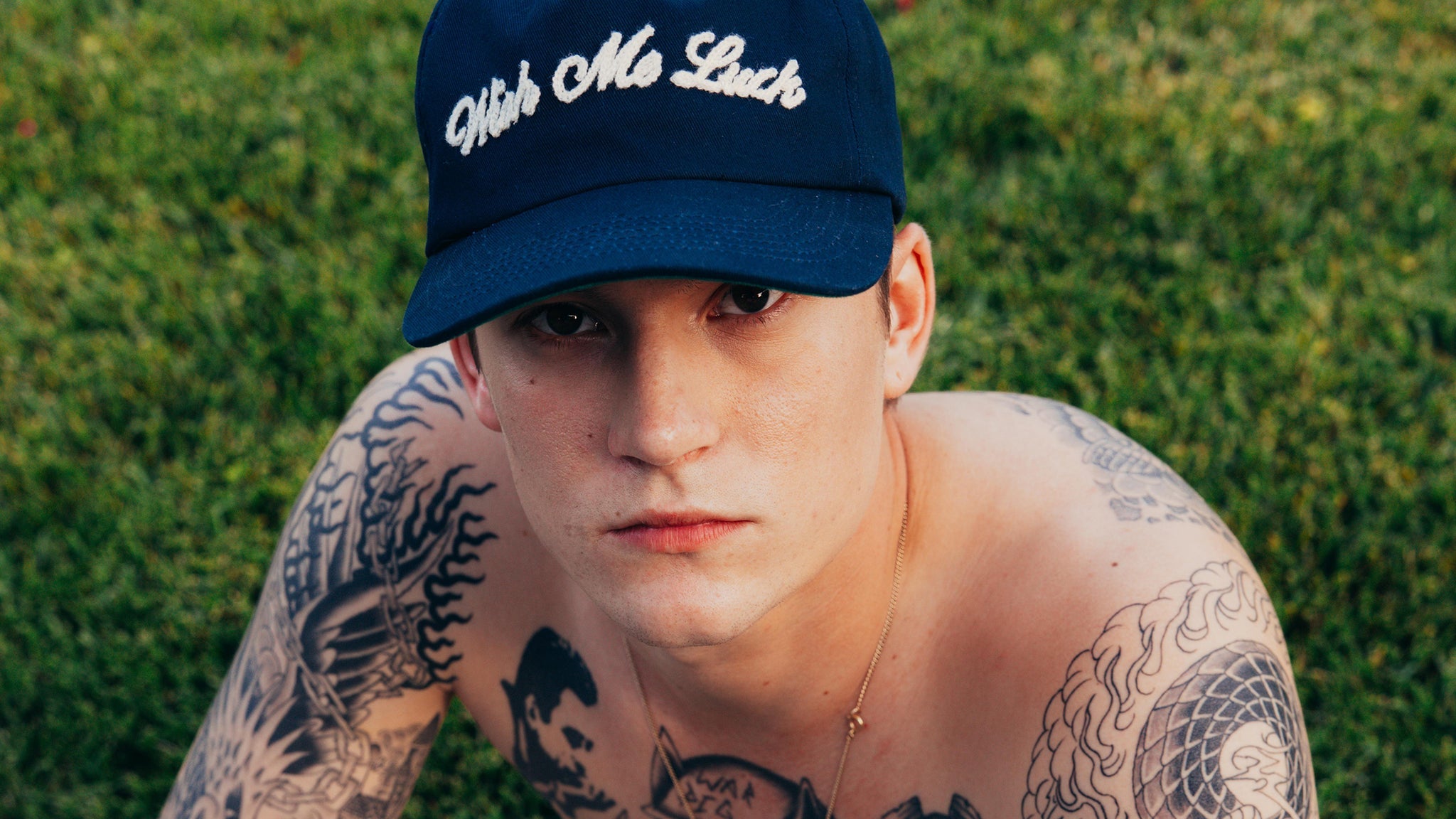
Cameron Whitcomb
Cameron Whitcomb Bio
One of the most captivating songwriters of his generation, 21-year-old Cameron Whitcomb is the rare newcomer with an incredible depth of life experience and the skill to tell his story with unforgettable impact. After leaving home at age 17 and getting a job on a pipeline, the British Columbia-bred artist discovered his passion for singing and soon devoted himself to making music, eventually achieving a monumental breakthrough with his 2024 debut EP Quitter—a fearlessly candid collection of country/folk songs inspired by his journey in overcoming addiction. Recently featured globally on the cover of Apple Music’s Today Country and named to coveted lists including both Spotify and Amazon Music’s 2025 Artists To Watch, Whitcomb now launches into a bold new chapter built on his most powerful work yet, fully affirming his formidable gifts as a storyteller.
Released in early 2025, Whitcomb’s larger-than-life single “Hundred Mile High” offers a thrilling glimpse into the next era of his career. In an evolution of the hook-heavy songcraft previously shown on tracks like “Quitter” and “Medusa”—both hits on the Billboard Canadian Hot 100— the breakneck-paced anthem instills a frenetic new energy into his sound and strikes a brilliant balance of gritty poetry and unfiltered confession (from the chorus: “So cold that I could see my breath/Floating down your silhouette/That chokehold that I can’t resist/No, I can’t love on something/Unless it makes me sick”). “‘Hundred Mile High’ is about chasing down something for the smallest bit of gratification, even if it means sacrificing your self-respect,” says Whitcomb. “It came from thinking about me and my buddies when we were 15 or 16, and how we’d pool all our money and walk across town in the dead of winter just to get a tiny bag of drugs that wouldn’t even last—that’s how I came up with the idea of walking a thousand miles for a hundred-mile high.”
Originally from Vancouver Island, Whitcomb first explored his musical side by playing drums as a kid. During his years on the pipeline, he spent much of his downtime singing karaoke and posting covers on Reddit, instantly revealing his effortless charisma and the deeply expressive character of his vocals. When an American Idol executive took note of his talents, he landed a spot on the show’s 20th season and triumphed as a top 20 finalist, then immersed himself in learning to write songs and play guitar while in the process of getting sober. “I was probably 12 the first time I had a drink or smoked weed, and within a few years I was doing cocaine and meth and whatever else I could find,” says Whitcomb. “I grew up in a family of addicts, and drugs have always been a big part of my environment. My best friend went into treatment and it changed his whole life, and I knew I had to do the same thing for my own mental health.”
While holed up in a cabin on a Vancouver Island farm, Whitcomb got clean and crafted countless songs, mining inspiration from country legends like Johnny Cash and tapping into his lifelong love of Eminem’s iconic early records (an essential influence on his vividly detailed lyrics and razor-sharp sense of wordplay). Before long, he came up with a track called “Shoot Me Dead”—a brutally self-aware but spellbinding portrait of reckless behavior and overwhelming guilt, fueled by his raw and raspy vocal work. “‘Shoot Me Dead’ felt like the first time I was completely honest in my lyrics and talked about real things going on in my life, and it was a huge stepping stone into how I approach songwriting now,” says Whitcomb. One of his first songs to gain major traction online, the self-released single paved the way for Whitcomb’s signing with Atlantic Records in early 2024. That May, he made his label debut with “Rocking Chair,” a piano-laced and painfully poignant track that amassed over 40 million combined views across socials before it had even officially premiered.
Released in September 2024, Quitter features five soul-searching songs spotlighting
Whitcomb’s willingness to go beyond surface-level honesty and dig into the harder truths of his experience—a dynamic stunningly displayed on the EP’s title track, an introspective but irresistibly catchy song that achieved chart success in five different Canadian radio formats and earned gold certification from Music Canada (the country’s equivalent of the RIAA). “‘Quitter’ is about the beginning phases of sobriety, where you try a few times and then you fail, and ultimately need to choose between addiction and what you love,” he says. Although his lyrics often examine his personal history with addiction, Whitcomb’s songwriting embodies the kind of paradoxical specificity that leaves plenty of room for listeners to insert their own stories. To that end, his November 2024 single “Medusa” doubles as a defiant heartbreak anthem and an intimate reflection on the desperation of dependency. “When I wrote ‘Medusa’ I was dealing with a breakup, and it turned into a song about a flawed relationship that could also apply to my relationship with drugs,” Whitcomb explains. Thanks to its undeniable resonance, “Medusa” quickly climbed to No. 29 on Billboard’s Hot Rock & Alternative Songs chart, further cementing Whitcomb’s status as an artist on the rise.
Over the past year, Whitcomb has also made his name as a must-see live performer, delivering an electrifying stage show featuring a full band that includes two of his childhood friends. Not long after embarking on his first-ever headline run with last fall’s sold-out Quitter Tour, he announced the Hundred Mile High Tour—his biggest headline outing yet, including stops at famed venues like New York City’s Bowery Ballroom—as well as an Australian tour as a special guest supporting platinum-selling singer/songwriter Sam Barber. “Whenever I can, I try to hang out after the shows until I’ve gotten to talk to everyone,” says Whitcomb, noting that his fans often bring him presents like bracelets and bibles. “Sometimes people tell me their story and talk about how my songs helped them to get sober, which always means a whole lot to me.”
Although Whitcomb finds immense joy in interacting with his fans, he’s careful to protect his songwriting process and create from a place of absolute freedom. “If people can find some kind of solace in my music, that’s amazing to me,” he says. “But I know that if I ever started writing with the intention of giving people what they want to hear, it wouldn’t sound as genuine. I think you can hear it in the music when someone’s telling the truth, so my only goal is to keep learning, keep getting better, and keep being as honest as I can possibly be.”





















